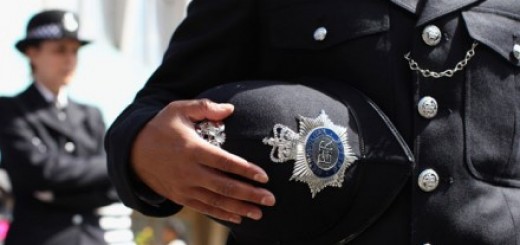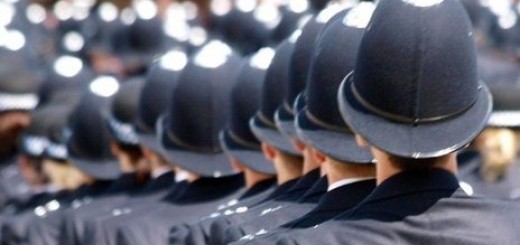Meeting an Inspirational Police Officer, Education and Culture
Meeting inspirational police officers is a real treat. There are plenty of them. PC Amjad Ditta (Twitter – @WYP_AmjadDitta) is one of those people. He is proud to be a police officer and proud of his force, West Yorkshire Police.
WYP have come under the microscope this week in relation to the pre-planned firearms operation that resulted in the death of Yassar Yaqub on Monday 2nd January 2017 and the subsequent demonstrations. There has also been the publication of crime figures that show per head of population that WYP is at the top of pile. Temporary ACC Angela Williams was interviewed by BBC Look North over both these matters. Obviously she was not able to speak about the on going IPCC investigation. She did the usual thing over stats, ‘it’s a minor increase’. What she did do was show that she was also proud of her force and the officers and staff she worked with. She cautiously put the blame, if there is any, on reduced budgets and a reduction in police officer numbers.
Getting back to Amjad, we met for the first time on Friday 6th January at York St John University. The purpose was to discuss the three policing programmes we are starting at YSJU in September 2017 (subject to validation), support for current officers in terms of learning and development and how we could make the most from the introduction of policing qualifications in terms of under-represented groups.
The inevitable question arose, ‘Why don’t people from BME communities apply for the police, or if they do, why don’t many of those candidates succeed?’ It is a shame after so many years that the same answers come up time and again.
- Culture (Police in other countries where some of the families in West Yorkshire came from are corrupt, dishonest and even dangerous)
- People are suspicious of the police
- Police are perceived to be racist
- Police are perceived to be corrupt
- Not a professional career
In terms of why don’t more people from the BME community who apply get in, there are a couple of stand out reasons; the applicant is not good enough, or they are not able to pass vetting standards. The potentially better candidates do not see policing as a profession. The vetting standards issue appears to be the same as it was when I was in the service. In some South Asian Heritage communities, families live in close proximity and interact more regular. Therefore, if a not so close family member visits your house on a regular basis and is involved in criminality, even if you are not aware, it could prevent you from joining. You are seen as too much of a risk compared to those people who live in small family units. If your family do not see policing as a professional and honest career, you will be encouraged to go in another direction, such as medicine or the law.
There has been a lot of hostility on Social Media towards the introduction of policing qualifications. Much is based around the idea that the service does not need a bunch of academics policing the streets. It needs people with common sense, the ability to communicate, a level head in a crises and a drive to serve the public, not their own career aspirations, and in many ways I agree. Having a large number of theorists on the street will not help reduce crime as it happens. Sometimes you need ‘doers’ not ‘thinkers’. Not every new recruit is going to be a Sergeant in fives years, let alone make Superintendent or higher during their career. The Government, the College of Policing, National Police Chief’s Council, Superintendent’s Association and the Police Federation have signed up, so why is there such a vocal hostility coming from operational officers?
My view is that many police forces have a very high standard of training. New recruits learn police law, policy and procedure, as well as the standards required of them. Officers are asked to be leaders and challenge corrupt and improper practise. What police forces do not tend to do is educate officers and staff. There are some people who do educate themselves with the support of their respective forces and have made great changes to the service; Ian Hesketh (@IanHesky), Gareth Stubbs (@DedicatedPeeler) and Michael Brown (@MentalHealthCop) to name a few people I know and have worked with. What is wrong then with educating people not only to perform as operational police officers, but to think about the wider impact of their work on society, to have a deeper understanding of social issues, to want to research difficult issues and make a difference? I joined the police service to do two things; protect vulnerable people and lock up bad people. I was fortunate enough to be supported by my force to undertake a Cert. Ed. and then a degree in Education and Training. It changed how I thought about police training. It helped me develop better training packages for police officers and staff. It made me a better trainer and educator and a better manager.
The new approach to education in the police service is not simply about officers requiring degrees, it is about so much more. Recognising Prior Learning (RPL) of those people who are already serving to allow them to attain recognised qualifications is an important step to moving policing further away from an inward looking culture to an organisation that understands and embraces positive change. An organisation that works on evidence should look for evidence in education and research that will improve the lives of all its staff and the public who rely on their service. If people are supported and developed, it will push the darker side of police culture further into the shadows until one day it may disappear all together. I doubt it as the police service are meant to reflect the communities they serve. This will inevitably mean that there will always be those people who should not be in the service.
Meeting people like PC Amjad Ditta from West Yorkshire Police reminds me that there are officers out there who do a very demanding job, but still care about the people they serve and want to do their bit to continuously improve the organisation. I look forward to Amjad doing some research in the future with me and being formally recognised for the inspirational officer he is.



Recent Comments